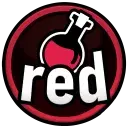https://lemmy.ml/post/13864821
I’d understand if they were a random user, but a mod should already have at least some understanding about a community’s topic.
But worse to me are their comments in that post calling the people responding “childish trolls in this community”. I do not think that this is appropriate for a moderator.
Thanks. They are no longer a mod of this community. (I wrote this comment to them and they did not reply.)
deleted by creator
But worse to me are their comments in that post calling the people responding “childish trolls in this community”. I do not think that this is appropriate for a moderator.
Funny, because that’s certainly how most of the responses sound like to me. OP was asking a reasonable question, and most of the responses there were nowhere near civil.
People are allowed to make mistakes every now and then. I would draw the line at open mod abuse such as using their rank to intimidate or just flat out removing people who they disagree with. Still a pretty crappy showing that I hope they grow from, but like, give them that chance.
What the hell? This was all reasonable stuff to discuss in newsgroups thirty years ago and every time the equivalent of xz happened but somehow now it indicates someone doesn’t understand open source?
And before someone makes the absurd claim that the limits and constraints of open source were settled back then, a state funded targeted attack on an open source project is as good a catalyst as any to uhh… revisit the priors that the “community” holds dear.
I swear to god you can take the redditors out of Reddit but you can’t take the Reddit out of the redditors.
Wtf is this witch-hunt?!
The person asked a legitimate question and was being made fun of by some people, and downvoted to oblivion for completely legitimate viewpoints imo (wanting to make companies give back to foss). A mod should absolutely be allowed to call out childish behavior and herd mentality when they see it, they aren’t supposed to be mindless drones after all! If anything they showed remarkable restraint when faced with some really nasty comments, mostly just stating/defending their opinion and trying to end toxic conversations.
Please just chill out, and accept that some people have different but equally valid opinions, even mods.
https://www.gnu.org/philosophy/open-source-misses-the-point.en.html
Am I missing something,
gnugpl is a licence, Foss a philosophy, isgnugpl licence Foss? And if so why are so many people saying charging for software isn’t Foss when Richard stalman himself makes the point “This is a matter of freedom, not price, so think of “free speech,” not “free beer.””Sorry if I got this wrong I am generally confused by this hole thing.
GNU is not a license, it’s a project, one that practically spearheaded the whole FOSS movement back in the 80s. The programs that were part of the GNU project were licenced under the GNU General Public License (GPL), which was originally written by Richard Stallman, and evolved over time to its current version, GPLv3 (now backed by the Free Software Foundation). So the “GPL” is the actual license that can be applied to any program, should the developer choose to do so (so it’s not limited just to the GNU project).
All GPL licenced programs are considered to be FOSS. However, FOSS can also imply other licenses such as MIT, LGPL, Apache etc. Most of them are kinda similar, but the way but differ slightly on how permissive/restrictive it is when it comes to modifications and derivatives.
why are some many people saying charging for software isn’t Foss when Richard stalman himself makes the point “This is a matter of freedom, not price, so think of “free speech,” not “free beer.””
As you said, it’s not about the price at all, the “free” means freedom. Specifically, the GPL explicitly states that you may charge money for the software. Other free software licences also generally state something similar.
The confusion regarding selling is best explained by the FSF:
Selling a copy of a free program is legitimate, and we encourage it.
However, when people think of “selling software,” they usually imagine doing it the way most companies do it: making the software proprietary rather than free.
So unless you’re going to draw distinctions carefully, the way this article does, we suggest it is better to avoid using the term “selling software” and choose some other wording instead. For example, you could say “distributing free software for a fee”—that is unambiguous.
https://www.gnu.org/philosophy/selling.html
Also, just to be clear, opensource =/= FOSS. Opensource just means that the source code is available, FOSS however implies that you’re free to modify and redistribute the program (+ some other freedoms/restrictions as per the specific license used).
Opensource just means that the source code is available, FOSS however implies that you’re free to modify and redistribute the program
Incorrect. “Open Source” also means that you are free to modify and redistribute the software.
If the source code is merely available but not free to modify and/or redistribute, then it is called source-available software.
Incorrect. “Open Source” also means that you are free to modify and redistribute the software.
Not necessarily true - that right to modify/redistribute depends on the exact license being applied. For example, the Open Watcom Public License claims to be an “open source” license, but it actually doesn’t allow making modifications. This is also why we specifically have the terms “free software” or “FOSS” which imply they you are indeed allowed to modify and redistribute.
I would recommend reading this: https://www.gnu.org/philosophy/open-source-misses-the-point.en.html
Not necessarily true - that right to modify/redistribute depends on the exact license being applied.
If you don’t have the right to modify and redistribute it (and to do so commercially) then it does not meet the definitions of free software or open source.
For example, the Open Watcom Public License claims to be an “open source” license, but it actually doesn’t allow making modifications.
The Sybase Open Watcom Public License does allow making modifications, and distributing modified versions. The reason why the FSF has not approved it is that it requires you to publish source code even if you only wanted to run your modified version yourself and didn’t actually want to distribute anything to anyone. (The Watcom license is one of the few licenses which is approved by OSI but not FSF. You can see the other licenses which are approved by one but not the other by sorting this table.)
The FSF’s own AGPL license is somewhat similar, but it only imposes the requirement if you run the software for someone else over a network. (Neither of these requirements are likely to be enforceable by copyright law, as I explained in my comment about the AGPL in the thread which this thread is about…)
This is also why we specifically have the terms “free software” or “FOSS” which imply they you are indeed allowed to modify and redistribute.
I would recommend reading this: https://www.gnu.org/philosophy/open-source-misses-the-point.en.html
I would recommend that you re-read that, because it actually explains that the two terms refer to essentially the same category of software licenses (while it advocates for using the term free software to emphasize the philosophical aspects of those licenses).
I’m not seeing the “insulting users of the community” point you stated OP, could you clarify? I did see one snarky response to a dude calling him an asshole, and I also saw posts stating he shouldn’t be a mod, and generally very hostile responsens. Those in mind, I think his output was quite civil even though I disagree with his reasoning and opinion to large degree.
This feels like a witchhunt to me, and I for one don’t think a volunteer moderators job should be in question if he has a hot take on something. He’s just keeping the spam etc. clean, he’s allowed to have differing opinions on subjects, as long as there is no misuse of his mod powers.
That’s insulting? Quite civil words, compared to the words the community he is describing, use in that thread.
Yes. And that doesn’t excuse it; a moderator should be better than the community they moderate.
Nah, they are average human beings
That’s honestly an unreasonable expectation of volunteers, and especially not one I’d want mods to measure themselves by. A mod who thinks he is better than the common users would be a massive asshole.






